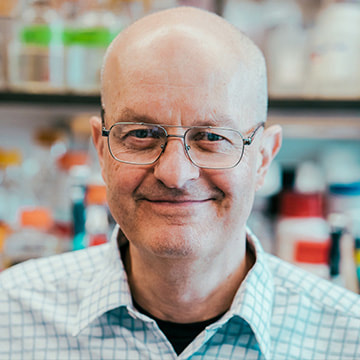|
Leonard Guarente, PhD
Director of the Paul F. Glenn Center for the Biology of Aging Research at MIT; Co-founder and Chief Scientist of Elysium Health, USA Dr. Guarente directs research and product development at Elysium Health. He is the Novartis Professor of Biology at MIT. Since 1982 he has led the Paul F. Glenn Center for the Biology of Aging Research at MIT, where his research has focused on the genetic and molecular basis of aging—first in model organisms and now in animals and humans. Dr. Guarente is best known for his research on the role of sirtuins, a class of proteins that play a key role in regulating metabolic systems in response to stress and aging. In particular, Guarente was the first to identify SIR2 as the gene that controls aging in yeast cells. The mammalian version of SIR2, SIRT1 (and its associated proteins), has since been shown by Guarente and others to play a key role in longevity and metabolic function in mammals. “What many scientists have repeatedly demonstrated is that if one increases the activity of sirtuins under these [stress or aging] conditions in the laboratory, a broad range of health benefits accrue to the animal,” Guarente says. “For example, old mice are less prone to diabetes. This has been repeated across multiple animal species, which underscores that sirtuins will be important targets to promote health in a broad range of categories in humans as well, for which human studies are ongoing now.” Dr. Guarente’s lab is currently focused on understanding how the human brain aging transcriptional program works and how it is regulated, to pave the way for anti-aging therapeutic strategies for neurodegenerative disease. His team is particularly interested in the role of sirtuins in human brain aging and neurodegeneration. They are investigating the role of sirtuin levels and also sirtuin polymorphisms in regulating human brain aging rates and neurodegenerative disease risk as well as looking broadly using unbiased genome-wide strategies. His lab is also studying muscle function in aging and disease by focusing on a protein called dysferlin, involved in a particular kind of muscular dystrophy. Guarente says, “We hope to develop interventions that can help counteract mutations in dysferlin to improve the health of people with muscle decline associated with disease or normal aging.” Dr. Guarente is a Koch Institute affiliate. He holds a BS from MIT and a PhD from Harvard. |
Metabesity 2019 Conference Services
Custom Management Group (CMG)
154 Hansen Road, Suite 201
Charlottesville, VA 22911 USA
[email protected]
+1 434-971-4788
custommanagement.com
Conference services for Metabesity 2019 are provided by Custom Management Group. If you need assistance with abstract submission or registration, please contact CMG by e-mail at [email protected] or by telephone at +1 434-971-4788.
154 Hansen Road, Suite 201
Charlottesville, VA 22911 USA
[email protected]
+1 434-971-4788
custommanagement.com
Conference services for Metabesity 2019 are provided by Custom Management Group. If you need assistance with abstract submission or registration, please contact CMG by e-mail at [email protected] or by telephone at +1 434-971-4788.
COPYRIGHT METABESITY 2019

